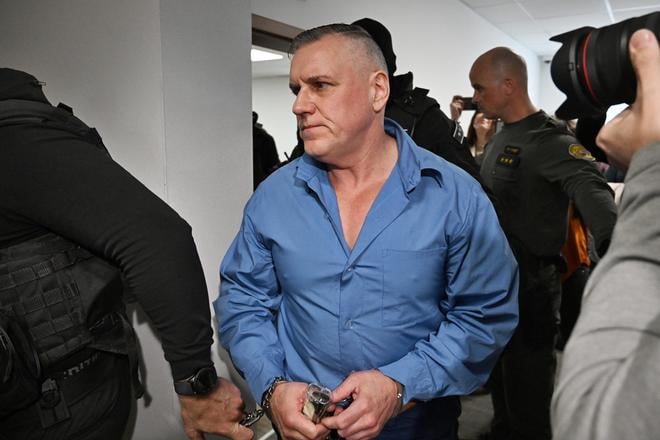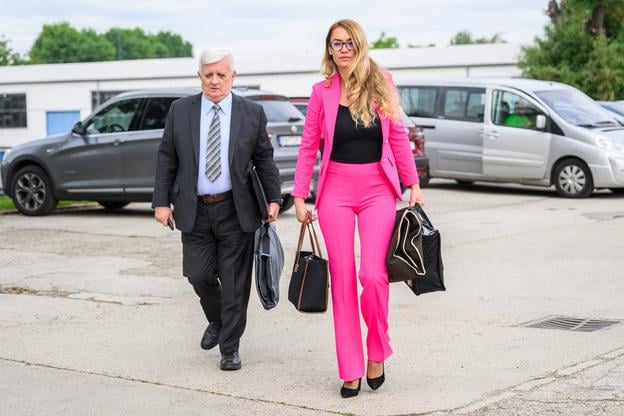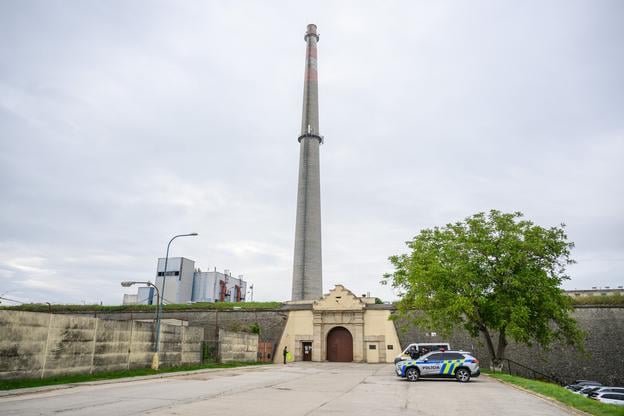When the heavy prison doors clanged shut behind Mikuláš Černák nearly three decades ago, few imagined they might one day open again. But on the spring morning of May 20, inside the fortified walls of Leopoldov prison, that prospect edged closer to reality.
Černák, once the feared boss of the Banská Bystrica mafia, has served 27 years of a life sentence for ordering or committing at least 14 murders. Now aged 58, he is seeking conditional release – potentially becoming the first prisoner serving a life sentence in modern Slovak history to walk free, according to Sme. But last-minute moves by prosecutors have thrown the proceedings into disarray.
Mikuláš Černák
He was born on December 9, 1966.
He is a former bus driver, entrepreneur and tiger breeder from Telgárt, central Slovakia.
The convicted former mafia boss has been in prison for 27 years.
He admitted to committing 16 crimes, including 14 murders.
Between 1994 and 1997, he personally took part in the killings of six individuals.
In 2000, while already in prison, he ordered the murder of businessman Marián Karcel.
Černák later began cooperating with law enforcement authorities.
In August 2020, the District Court in Banská Bystrica approved a plea deal during a public hearing. Given his existing life sentence in a high-security prison unit, the court ruled that no additional cumulative sentence was necessary.
Under Slovak law, prisoners serving life sentences may be eligible for parole after 25 years, provided they meet specific conditions.
The court had been expected to deliver a decision by Thursday. Instead, the process was abruptly postponed after prosecutor Monika Brodanská submitted hundreds of pages of fresh documents – detailing Černák’s conduct over the past quarter-century behind bars – which she said “cast serious doubt” on his claims of rehabilitation.
“It’s an unusual step,” remarked Judge Peter Vrbjar, clearly taken aback, as was Černák’s five-member defence team. The new evidence includes detailed reports from prison psychologists and wardens, documenting not only good behaviour but also disciplinary issues: possession of unauthorised items, disobedience, and other infractions once buried in institutional archives.
Most strikingly, the new 500-page material came to light after an anonymous tip reached the Trnava Prosecutor’s Office just a month ago.
This evidence stands in stark contrast to an earlier, positive assessment from the director of Leopoldov prison, who had endorsed Černák’s early release – a rare recommendation in cases involving life sentences. The court, however, declined to hear the warden’s testimony.
The legal manoeuvring has intensified public debate in Slovakia, where Černák’s name still evokes fear. A recent two-part film about his life, “Miki” (1) and “Černák” (2), reignited both public fascination and unease as the courts prepared to weigh his fate.
From mobster to memoirist
The courtroom, set up inside a prison cinema under tight security, saw appearances from a colourful cast. Černák’s legal team included veteran advocate Ján Gereg and his colleague Diana Messingerová, who wore a bright pink suit. Among the audience sat Černák’s long-term partner, Monika Křivová, herself a lawyer.
Černák, calm and upright in his blue prison uniform, remained silent on Tuesday. Yet his past loomed large: in the 1990s, his gang was linked to dozens of brutal killings, including the 1997 murder of Peter “Tiger” Novotný, a rival mobster. “You can’t undo the past,” Černák admitted in court last year.
Much of Černák’s rehabilitation narrative has centred on his participation in a prison reintegration programme called Chance for Return. He has painted walls, refurbished a therapy room, and even published a memoir in 2015 – a confessional that also implicated Slovak political figures in criminal schemes.
“I want to stand face to face with my dark past,” he told judges during earlier hearings. He has expressed hopes of working in tourism and building a log cabin guesthouse in Telgárt. His supporters claim he has changed. His critics argue he has merely learned to play the system.
Restart
Even the non-profit organisation behind his parole request – Restart–New Life – has come under scrutiny. Its founder, Romanian-born Adina Ioana Popa, admitted the group was established specifically to support Černák, with close involvement from his family and legal team. Still, she insisted he deserved a second chance. Popa was unable to provide any specific details about the crimes for which Černák is imprisoned.
“I wasn’t here at the time, and I didn’t know him back then,” she said on Tuesday. “But I’m convinced he’s a different person now.”
But prosecutors are not convinced. “He was good at sewing shoes,” scoffed prosecutor Peter Repa last year, dismissing Černák’s commendations as evidence of institutional compliance rather than genuine reform. He noted that none of the nine disciplinary rewards Černák received related to personal development.
Should the court ultimately approve his release, the decision would still require confirmation from a higher court. The process, already prolonged, could take months. In the meantime, Černák remains in Leopoldov – where he has spent nearly half his life – awaiting a verdict that could rewrite his legacy and set a legal precedent.


 Convicted mobster Mikuláš Černák leaves the court in Piešťany on 2 April 2025. (source: TASR - Lukáš Grinaj)
Convicted mobster Mikuláš Černák leaves the court in Piešťany on 2 April 2025. (source: TASR - Lukáš Grinaj)
 Defence lawyers Ján Gereg and Diana Messingerová arrive at the Leopoldov Correctional Facility on 20 May 2025 for a hearing on the possible release of Mikuláš Černák. On 19 December 1997, Černák – once a bus driver, businessman, and tiger breeder – turned himself in to police. Dubbed by the media as Slovakia’s mafia boss, he was initially charged with extorting central Slovak businessmen, and later also with the murder of Polish national Grzegorz Szymanek. (source: TASR - Jaroslav Novák)
Defence lawyers Ján Gereg and Diana Messingerová arrive at the Leopoldov Correctional Facility on 20 May 2025 for a hearing on the possible release of Mikuláš Černák. On 19 December 1997, Černák – once a bus driver, businessman, and tiger breeder – turned himself in to police. Dubbed by the media as Slovakia’s mafia boss, he was initially charged with extorting central Slovak businessmen, and later also with the murder of Polish national Grzegorz Szymanek. (source: TASR - Jaroslav Novák)
 Leopoldov Correctional Facility (source: TASR - Jaroslav Novák)
Leopoldov Correctional Facility (source: TASR - Jaroslav Novák)